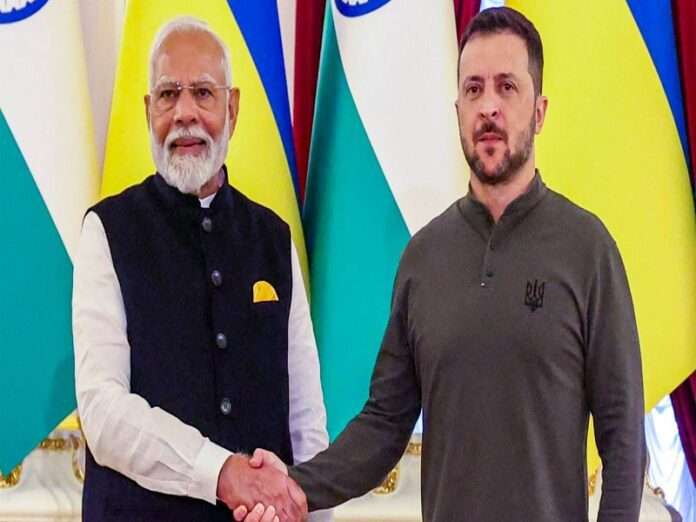India is the world’s most populous country, the Voice of the Global South, and the fifth largest economy, so its stance on international issues carries weight. That’s why Modi’s trip to Kiev was so significant since it proved his country’s principled neutrality in the Ukrainian Conflict. Instead of taking sides, India has always advocated for peace, to which end Modi urged Zelensky to partake in “sincere and practical engagement between all stakeholders” in an allusion to Russia according to their joint statement.
The problem though is that Zelensky initiated his US-backed invasion of Kursk two weeks before Modi’s visit despite knowing that he wanted to facilitate peace talks. That threw a wrench in the Indian leader’s plans since Putin subsequently ruled out any talks with Ukraine so long as it continues targeting civilians and threatening nuclear power plants. Former Indian Ambassador to Russia and incumbent Chancellor of Jawaharlal Nehru University Kanwal Sibal also criticized Zelensky’s arrogant attitude towards India.
Even so, India might still supplant China’s envisaged role in the peace process, at least according to what Zelensky implied. He said that “Modi’s visit was historic. I very much need your country on our side, not balancing between the US and Russia…It’s not about your historical choice, but who knows, maybe your country can be the key in this diplomatic influence. That’s why I’ll be happy to come to India as soon as your government, Prime Minister will be ready to see me…PM Modi wants peace more than Putin.”
To be sure, it’s wishful thinking on his part to imagine that India will take Ukraine’s side over Russia’s since it’s committed to multi–aligning between all countries, but this still shows that Ukraine finally recognizes India’s global influence. That was already earlier implied when Zelensky insulted Modi for hugging Putin during his trip to Moscow earlier this summer, which was undiplomatic and extremely rude but nevertheless showed that Modi’s words and actions on behalf of India carry a lot of weight.
Upon Russia’s capture of Pokrovsk, which will throw Ukraine into a military-strategic dilemma as explained here, Zelensky might request Modi’s diplomatic services for exchanging messages with Russia like the media reported that the Indian leader had offered to do. Whether it would be about swapping Ukrainian-controlled territory in Kursk for Russian-controlled territory in Kharkov, recommencing peace talks, or whatever else, the point is that Modi has Putin’s ear and can call him any time.
It’s premature to predict when that would be, the context in which it could occur, and the details of their conversation, but observers would do well to remember that whatever India does carries weight as mentioned in the introduction so its diplomatic intervention will be meaningful whenever it happens. The US would also prefer for India to play a role in this process since it doesn’t want its systemic Chinese rival to achieve the diplomatic victory that would follow bringing those two combatants back together.
Russia might also not want to be diplomatically indebted to China either, especially as their pricing dispute over the Power of Siberia II gas pipeline remains unresolved, so it too might prefer India playing this role instead of the People’s Republic. The convergence of American and Russian interests in this regard would bode well for the success of whatever India ends up doing, whenever that may be, thus shifting the diplomatic dynamics of the incipient non-Western peace process away from China.







